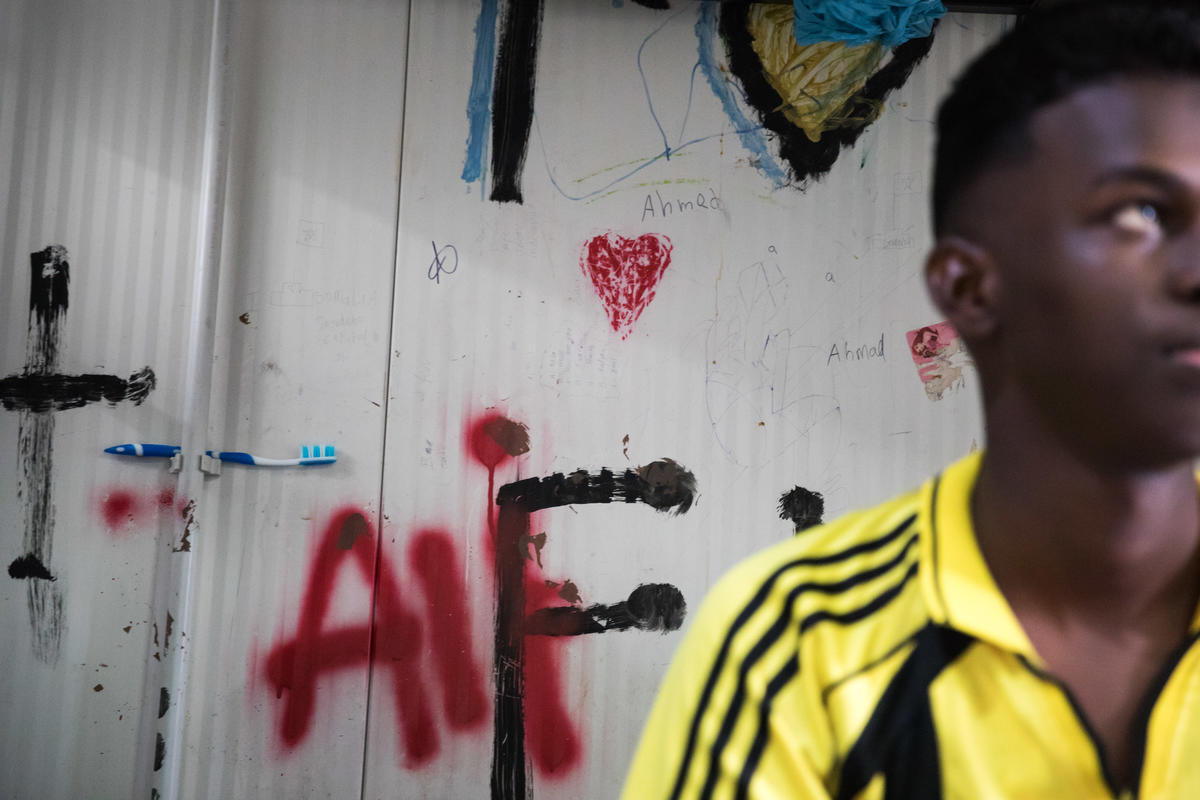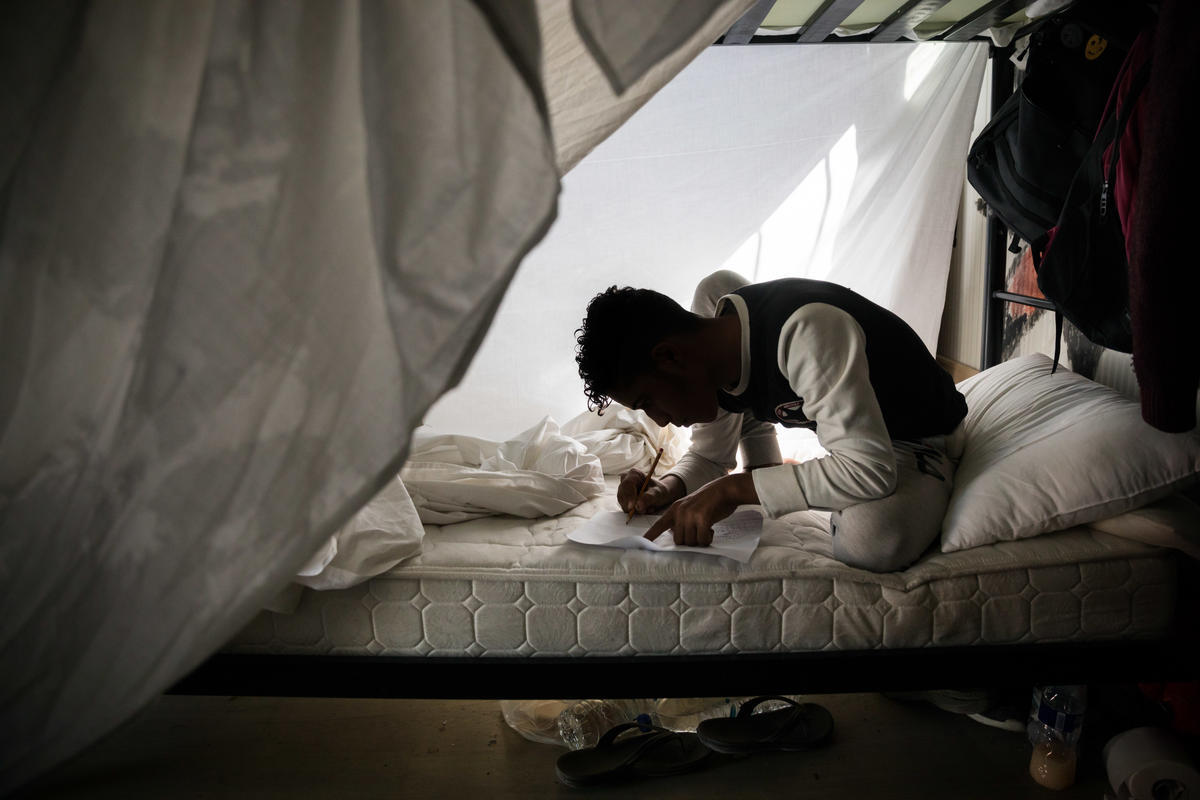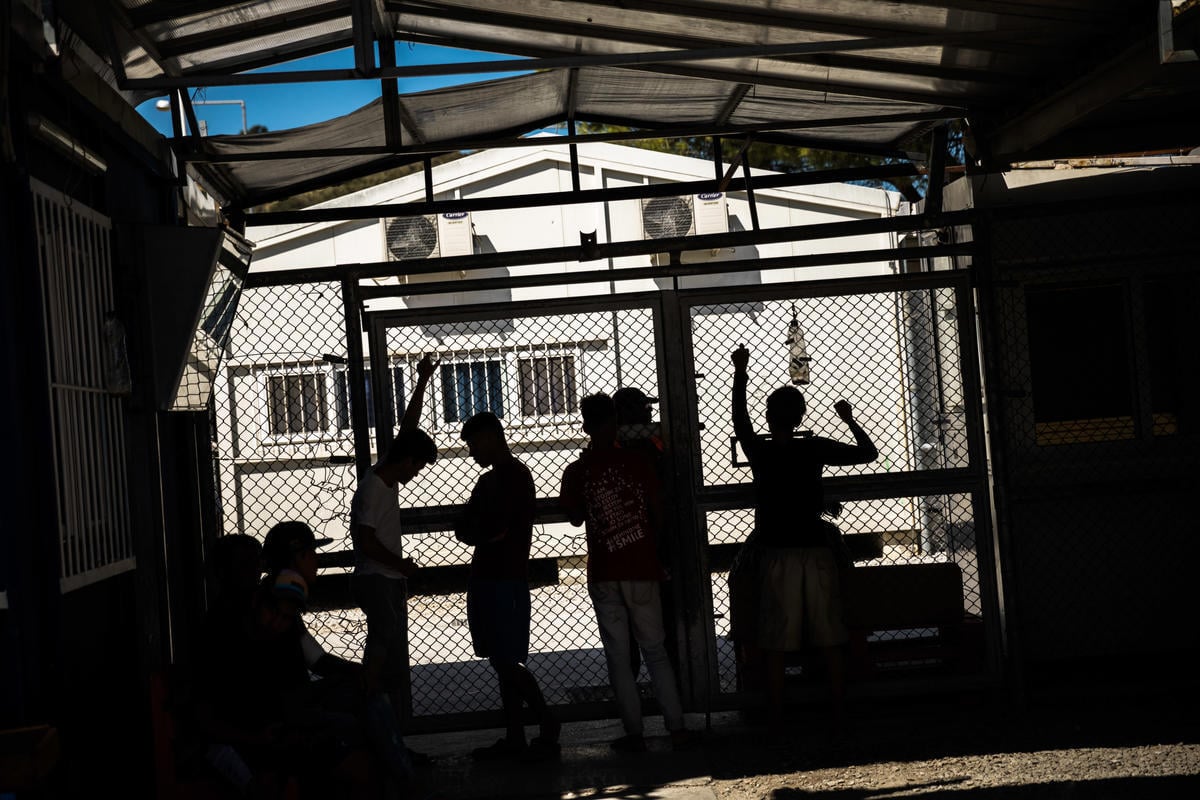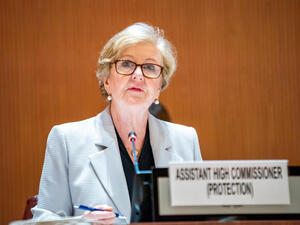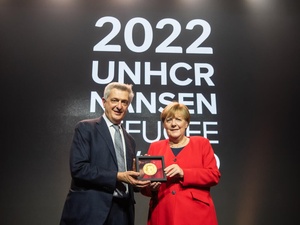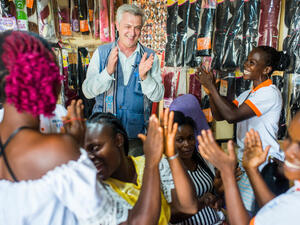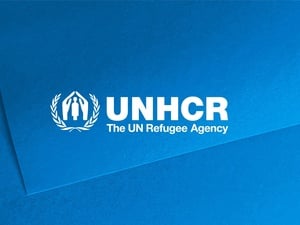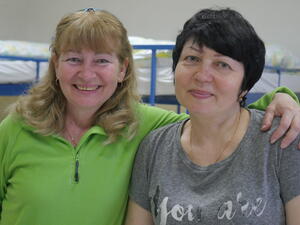Lone children face insecurity on Greek island
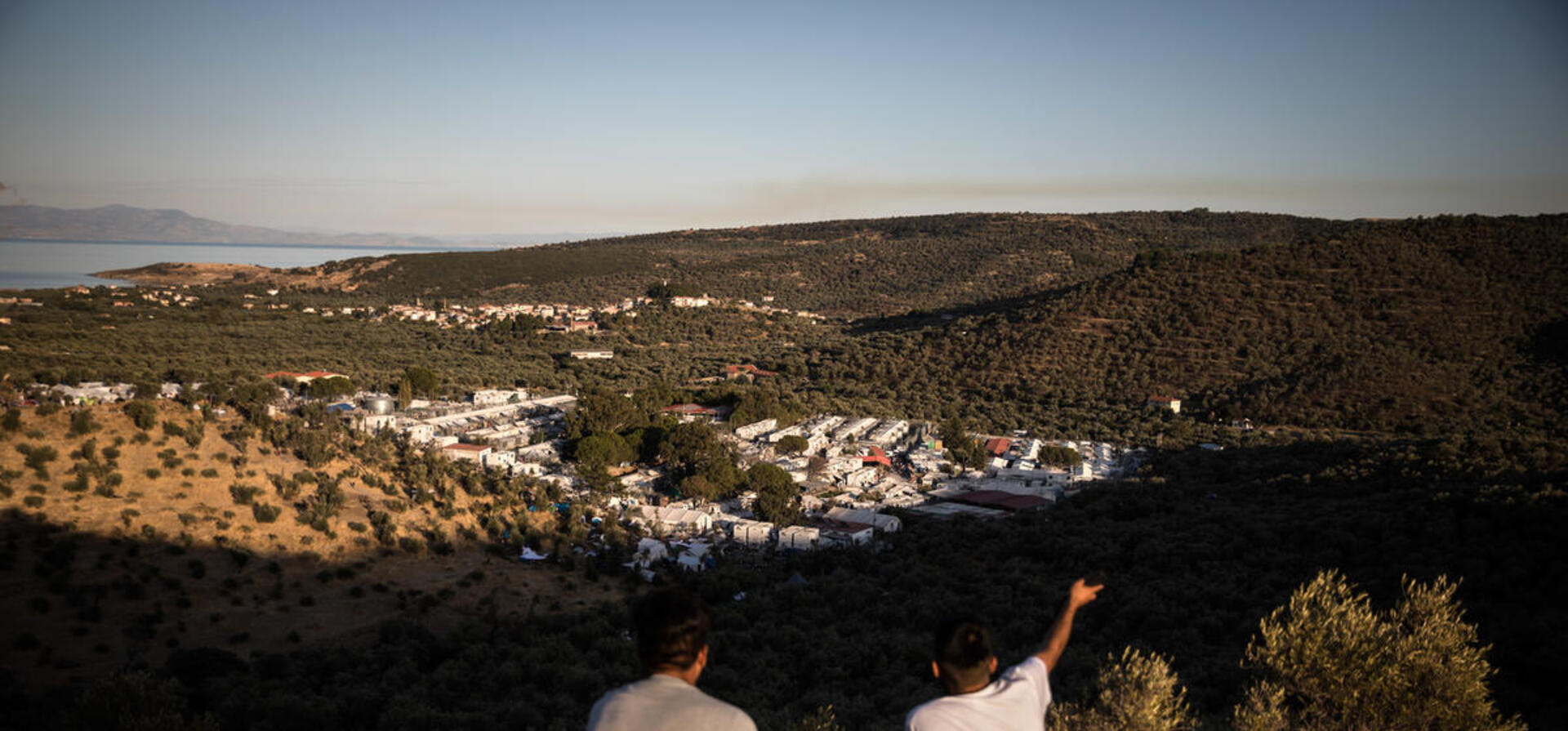
Lone children face insecurity on Greek island
Zemar* was only 15 when he arrived from Afghanistan at the Moria reception centre on the Greek island of Lesvos last month. He had survived a string of traumatic experiences and just been separated from his parents and needed calm. He did not get it.
On his first night, thieves stole his bag. The loss compounded his sense of loneliness.
“They took everything,” he said. “I had no one to talk to.”
A few nights later, three men attacked him. He woke up, fought them off and escaped to a police patrol at Moria’s main gate. He said he spent the night on the sidewalk, safe but unable to explain to the officers what had happened because there was no interpreter.
Conditions have become grim at the Moria reception centre for asylum seekers, which now hosts 12,800 people – five times the capacity it was designed for – in containers and tents inside the centre and at an adjacent olive grove. Nearly 1,000 children, most of them teens, live in Moria without parents or relatives. Half are housed in four protected sections marked A through D and a Safe Zone, but the rest sleep in a tent-like warehouse, known as a Rubb Hall, where adult asylum seekers also stay.
European States must step up their efforts to protect child refugees and migrants who have endured not only dangerous journeys but face risks and hardship once in Europe, including unsafe accommodation, being incorrectly registered as adults, and a lack of appropriate care, UNHCR, the UN Refugee Agency, said in a report on Monday.
Across Greece’s Aegean islands, over 1,600 unaccompanied children are staying in government-run reception facilities such as Moria.
At the Vathy centre on Samos island more than a dozen unaccompanied girls take turns to sleep in a small container, while other children sleep on container roofs. Unaccompanied children can live in unsafe conditions for months while waiting for an authorized transfer to shelters and it affects them mentally and physically.
"Mother? Father? Where are you?"
“We all feel useless … I have so much stress. I am losing my memory. Every time I sleep I have nightmares. All I want is to see my family again,” says Zemar.
The number of children asylum-seekers without their parents in Greece has increased to over 4,600, the highest since 2016. Only one in four stay in shelters appropriate for their age and more than 1,000 have become homeless or stay in informal housing, such as squats.
UNHCR has stepped up its call for Greece to protect the unaccompanied children. The organization has appealed to European States to make it a priority to open places for their relocation and speed transfers for children eligible to join family members.

Zemar*, who is 15, arrived from Afghanistan on Lesvos island unaccompanied by his parents. He is staying at the Moria reception centre. *Name changed for protection reasons
“The situation in Moria has become critical and the risks for unaccompanied children are very high,” says Philippe Leclerc, UNHCR Representative in Greece. “The Greek government with crucial support from European countries must take urgent measures to ensure that these children are protected.”
Zemar fled Afghanistan with his family after the Taliban killed his older brother for collaborating with Afghan authorities. He was separated from his parents on a Turkish beach when smugglers made them and a group of 50 others to board a dinghy bound for Lesvos in the middle of the night. Some were unable to climb in quickly enough and were left behind.
“Mother? Father? Where are you?” Zemar said he yelled in the darkness, but there was no response.
The morning after Zemar was attacked in his sleep authorities, with help from UNHCR partner METAdrasi, found a place for him in one of the secured sections for unaccompanied children at Section A, where 150 boys from Afghanistan and Syria are staying.
“Section A is better, but the boys get angry,” says Zemar. “Sometimes they fight. If they see me they harass me. The other night there was a knife fight and one boy was hurt,” he said.
The tension is common. In August, an Afghan boy stabbed and killed another during a fight in the Safe Zone.
Zemar hopes to make contact with his parents soon. Qasim*, by contrast, lost contact with his parents after he fled from Islamic State when they took over his hometown of Deir ez-Zor in Syria.
Qasim, who was also moved by authorities to Section A, is 14 and exhausted from his ordeal and his stay in Moria.
“All I want is to rest, to be safe, and to go to school,” says Qasim who has already filed an application to re-join his brother who lives in Germany. He has lost years of schooling and desperately wants to be back in a classroom with his peers. “In Syria, I only went to school for three years. It was a good school but they bombed it and we couldn’t go to school anymore,” he said.
Despite their troubles, Qasim and Zemar said they felt fortunate to stay in one of the centre’s relatively protected areas for unaccompanied children rather than in the Rubb Hall or on the street.
“European countries have super powers. They should do something about Moria,” Zemar said.
*Names have been changed for protection reasons.



